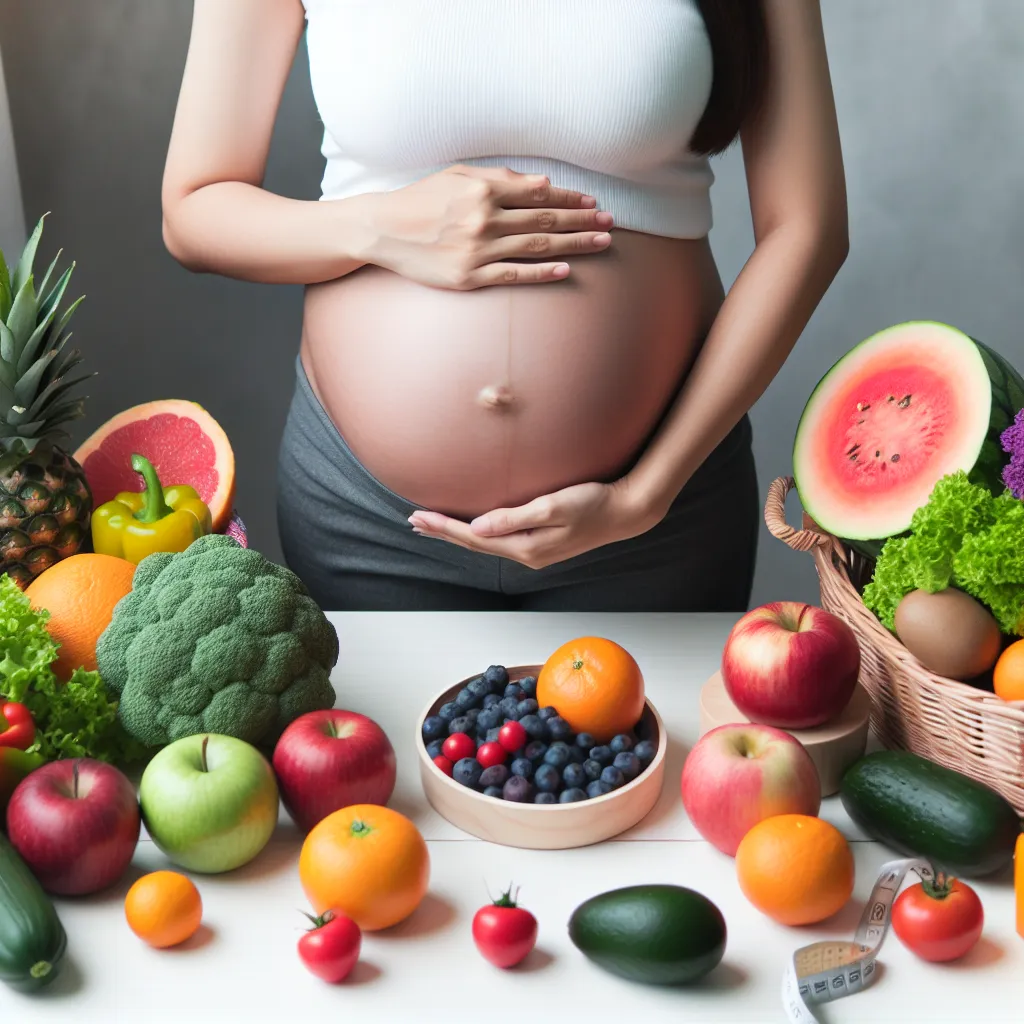Understanding the Role of Prenatal Nutrition
Understanding the role of prenatal nutrition is crucial for the health and development of both the mother and the growing fetus. Prenatal nutrition refers to the specific dietary needs and recommendations for women who are pregnant, with the goal of supporting the growth and development of the unborn child. A well-balanced and nutrient-rich diet during pregnancy is essential for the overall well-being of the mother and the long-term health of the child.
During pregnancy, the body undergoes numerous physiological changes to support the growing fetus, and these changes increase the demand for certain nutrients. Adequate intake of essential nutrients such as folic acid, iron, calcium, and protein is vital for the prevention of birth defects, proper formation of the baby’s organs, and the overall health of the mother. Additionally, omega-3 fatty acids play a crucial role in the development of the baby’s brain and eyes.
Furthermore, prenatal nutrition also influences the risk of developing pregnancy-related complications such as gestational diabetes and preeclampsia. By understanding the role of specific nutrients in mitigating these risks, expectant mothers can make informed choices about their dietary intake to optimize their pregnancy outcomes.
In conclusion, grasping the significance of prenatal nutrition is essential for expectant mothers to make informed choices about their diet and ensure the optimal development of their growing baby. Through a balanced and nutritious diet, pregnant women can positively impact both their own health and the well-being of their unborn child.
Essential Nutrients for a Healthy Pregnancy
Essential nutrients play a crucial role in ensuring a healthy pregnancy and the proper development of the fetus. Prenatal nutrition is a fundamental aspect of maternal health, and it directly influences the growth and well-being of the baby. Adequate intake of essential nutrients is vital for supporting the increased demands of the mother’s body and the optimal development of the baby.
Key essential nutrients during pregnancy include folate, iron, calcium, and omega-3 fatty acids. Folate is essential for preventing neural tube defects and supporting the baby’s brain and spinal cord development. Iron is crucial for the production of red blood cells and preventing anemia in the mother, which can lead to complications during pregnancy. Calcium is important for the development of the baby’s bones, teeth, muscles, and nerves. Omega-3 fatty acids, particularly DHA, play a critical role in the development of the baby’s brain and eyes.
Additionally, adequate intake of vitamins such as vitamin D, vitamin C, and vitamin A is essential for supporting the immune system, maintaining healthy skin and tissues, and promoting healthy vision in the baby. Proper hydration and consuming enough water is also essential for maintaining amniotic fluid levels, supporting nutrient transport to the baby, and preventing dehydration in the mother.
Overall, ensuring adequate intake of essential nutrients through a well-balanced diet and, if necessary, prenatal supplements, is crucial for promoting a healthy pregnancy and supporting the optimal development of the baby.
Impact of Maternal Diet on Fetal Development
Maternal nutrition plays a crucial role in the development of the fetus. The impact of maternal diet on fetal development is a topic of great significance in prenatal care. Adequate intake of essential nutrients such as folic acid, iron, calcium, and omega-3 fatty acids is vital for the healthy growth and development of the fetus. A deficiency in these nutrients can lead to an increased risk of neural tube defects, low birth weight, and other developmental abnormalities.
Folic acid is particularly important in the early stages of pregnancy as it helps prevent neural tube defects, such as spina bifida. Iron is essential for the transport of oxygen to the developing fetus, and a deficiency can result in premature birth and low birth weight. Calcium is necessary for the formation of the baby’s bones and teeth, while omega-3 fatty acids play a key role in brain and eye development.
Conversely, an unhealthy maternal diet high in processed foods, saturated fats, and added sugars can have detrimental effects on fetal development. It can increase the risk of gestational diabetes, preeclampsia, and obesity in the offspring later in life. Moreover, excessive intake of caffeine and certain types of fish high in mercury can pose risks to the developing fetus.
In conclusion, the impact of maternal diet on fetal development cannot be overstated. It is vital for expectant mothers to maintain a well-balanced diet that includes a variety of nutrient-rich foods to support the optimal growth and development of the fetus.
Importance of Prenatal Vitamins and Minerals
Proper prenatal nutrition is crucial for the health and development of the growing fetus. A key component of prenatal nutrition is the consumption of essential vitamins and minerals to support the baby’s growth and the mother’s well-being. Prenatal vitamins play a vital role in filling potential nutrient gaps in the mother’s diet and ensuring that the baby receives all the necessary nutrients for healthy development.
One of the most important prenatal vitamins is folic acid, which is crucial for the early development of the baby’s neural tube and can help prevent serious birth defects of the brain and spine. Additionally, iron is essential for the increased production of red blood cells in both the mother and the fetus, aiding in the prevention of anemia and supporting the baby’s overall growth.
Furthermore, adequate intake of calcium during pregnancy is essential for the development of strong bones and teeth in the baby. It also helps the mother maintain her own bone density. Other important minerals include zinc, which supports the immune system and helps with cell growth, and iodine, which is crucial for the baby’s brain development and preventing stunted growth and intellectual disabilities.
In conclusion, prenatal vitamins and minerals play a critical role in supporting the health and development of both the mother and the growing fetus. It is essential for expectant mothers to work with their healthcare providers to ensure they are receiving adequate amounts of these vital nutrients throughout their pregnancy.
Nutrition Tips for Expecting Mothers
Proper nutrition during pregnancy is crucial for the health and development of both the mother and the baby. Expecting mothers should focus on consuming a well-balanced diet that provides essential nutrients for the growing fetus and supports the mother’s changing nutritional needs. Here are some important nutrition tips for expecting mothers to ensure a healthy pregnancy:
1. **Folate-Rich Foods**: Folate is essential for the early development of the baby’s neural tube. Incorporate folate-rich foods such as leafy green vegetables, citrus fruits, beans, and fortified cereals into your diet.
2. **Iron Intake**: Pregnant women need more iron to support the increased production of blood for both the mother and the baby. Include iron-rich foods like lean meat, poultry, fish, lentils, and iron-fortified cereals to prevent anemia.
3. **Calcium Sources**: The developing baby requires calcium for the formation of strong bones and teeth. Ensure an adequate intake of dairy products, leafy greens, and calcium-fortified foods to meet the increased calcium needs during pregnancy.
4. **Protein**: Adequate protein intake is vital for the growth and development of the fetus. Incorporate lean meats, poultry, fish, eggs, dairy products, and plant-based sources of protein like beans and legumes into your meals.
5. **Hydration**: Staying well-hydrated is essential for pregnant women to support the increased blood volume and amniotic fluid. Aim to drink plenty of water throughout the day and include hydrating foods such as fruits and vegetables in your diet.
6. **DHA-Rich Foods**: Omega-3 fatty acids, particularly DHA, are important for the baby’s brain and eye development. Include DHA-rich foods such as fatty fish (salmon, mackerel), flaxseeds, and walnuts to support the baby’s cognitive development.
7. **Limited Caffeine and Avoid Alcohol**: Limit your caffeine intake and avoid alcohol during pregnancy as they can have negative effects on the baby’s development.
By focusing on a well-rounded and nutrient-dense diet, pregnant women can ensure proper fetal growth and development while supporting their own health during this critical time.
Creating a Nourishing Prenatal Diet Plan
Creating a nourishing prenatal diet plan is essential for the health and well-being of both the mother and the developing baby. Proper prenatal nutrition plays a crucial role in the baby’s growth and development, as well as in reducing the risk of certain birth defects and complications. When crafting a prenatal diet plan, it’s important to focus on consuming a variety of nutrient-dense foods that provide the essential vitamins, minerals, and macronutrients needed during pregnancy.
First and foremost, a prenatal diet plan should include a rich assortment of fruits and vegetables, as they are packed with essential vitamins, minerals, and fiber. Dark leafy greens, such as spinach and kale, are excellent sources of folate, a B vitamin that is crucial for the baby’s neural tube development. Additionally, incorporating a range of colorful fruits and vegetables ensures a diverse intake of antioxidants, which can help protect the mother and baby from oxidative stress.
Another vital component of a nourishing prenatal diet plan is obtaining an adequate amount of high-quality proteins. Lean meats, poultry, fish, eggs, legumes, and nuts are all excellent sources of protein, and they also provide essential nutrients such as iron, zinc, and omega-3 fatty acids. These nutrients are critical for the baby’s growth and can help prevent complications such as low birth weight and preterm delivery.
Including whole grains in the prenatal diet plan is also crucial for providing a good source of energy and important nutrients such as fiber, B vitamins, and minerals. Whole grain products like brown rice, quinoa, oats, and whole grain bread are excellent choices to incorporate into meals. It’s important to focus on complex carbohydrates that provide sustained energy and avoid overly processed and refined grains.
Furthermore, the consumption of dairy products or fortified plant-based milk alternatives is essential for obtaining an adequate intake of calcium and vitamin D, which are crucial for the development of the baby’s bones and teeth. Incorporating sources of healthy fats, such as avocados, nuts, seeds, and olive oil, is also important for supporting the baby’s brain and nervous system development.
Overall, creating a nourishing prenatal diet plan involves focusing on a variety of nutrient-dense foods that provide the essential building blocks for the healthy growth and development of the baby. By prioritizing a balanced intake of fruits, vegetables, proteins, whole grains, dairy or plant-based alternatives, and healthy fats, expectant mothers can ensure they are meeting their nutritional needs and supporting the optimal health of their growing baby.





